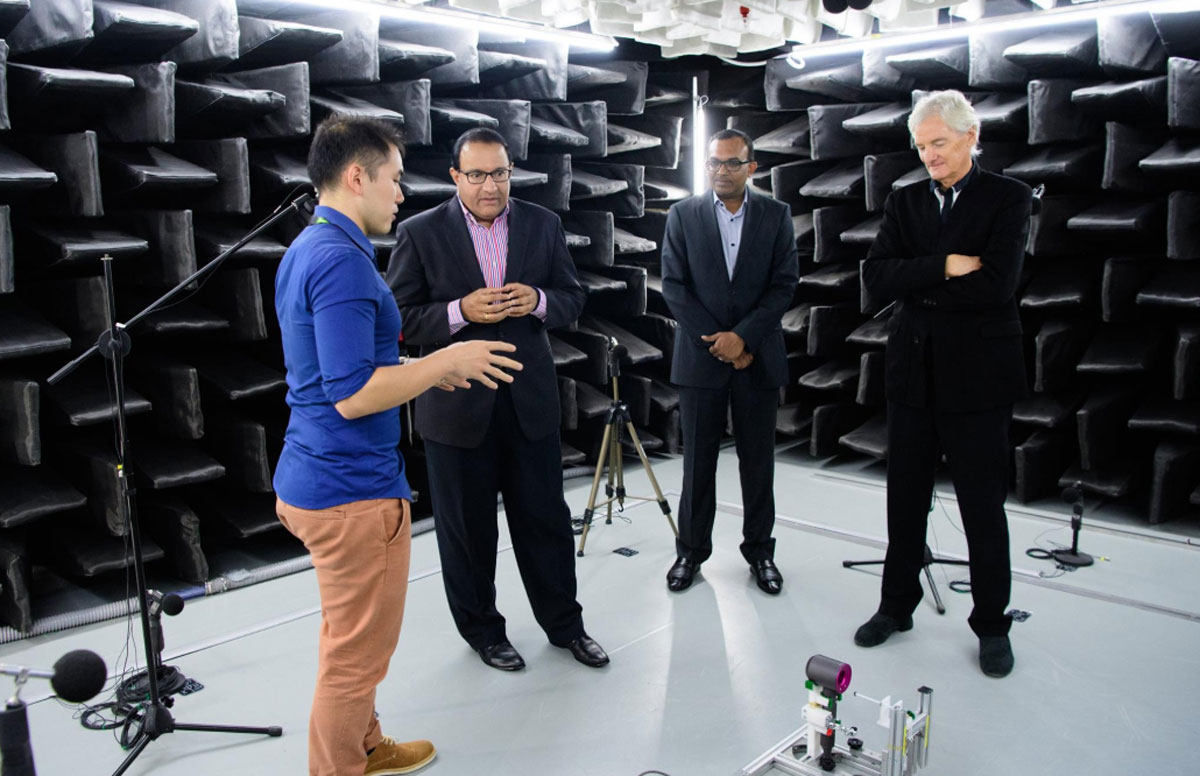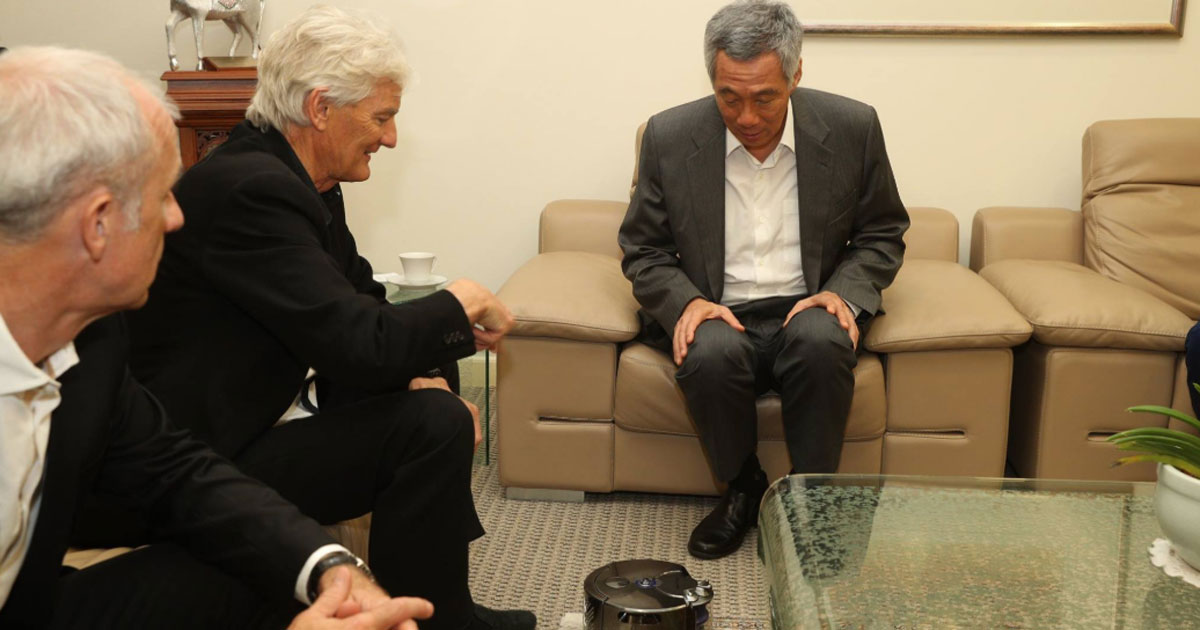When Dyson said it was taking its electric car plant to Singapore, the company's founder James Dyson was chewed up by the British press.
Dyson the man, who is a billionaire, after all, was a Brexit backer.
For him to take operations out of Britain after urging Britain to leave the EU, was deliciously ironic -- especially since Singapore was just a British colonial outpost some years ago.
Adding to the irony now is a dash of tragedy.
One year after Dyson's plan to move its automotive-making facility to Singapore, the news suddenly broke on Oct. 10, 2019 that it was simply not going to happen anymore because there was no clear way of making money from this car-manufacturing venture.
And not as if there were no tell-tale signs.
Even though the naysaying press has a knack for fanning flames, at the same time, they can be oddly prescient.
Here are some of those "Hate to say I told you so" media reports.
The "It's so easy everyone will be doing it" argument
The South China Morning Post gave a plausible-sounding explanation on Oct. 11 on why Dyson is pulling out of Singapore.
It said it is because electric cars are too easy to make.
Even though this sounds like a contrarian hot take, here is the explanation.
SCMP cited Goldman Sachs, which reported that a combustion engine needs about 30,000 components, while an electric vehicle needs just 11,000 parts.
As a result, barriers to entry will be low and will only get lower, and the electric car market is expected to get more competitive with more entrants in the game making electric cars.
Dyson's formidable competition includes Tesla and Lucid Motors in the U.S., to Byton and NIO in China.
And trying to sell cars without a dealership network is an even more formidable task.
Plus, existing competition is making Dyson's future more bleak.
Volkswagen, which has little problem selling its cars already, has announced it is investing US$52 billion in electrification.
Volkswagen has a positive network effect, while Dyson is barely getting theirs started.
Moreover, just 575,000 electric vehicles were sold globally in April, May and June 2019 -- a drop in the ocean of combustion engine cars that still rule all roads.
The "Why not just go to China?" argument
One year ago, on Oct. 24, 2018, Reuters put up a piece that was clearly showing how it was scratching its head trying to understand why Dyson picked Singapore to build electric cars when cars are expensive here, and pretty much land and labour and everything else is expensive here.
One question it asked then, which many are still asking now is: Why not just head to China?
The figures are telling.
Some 700,000 electric cars were expected to be sold in China in 2018 alone -- more than double the combined sales from the United States and Europe.
[Reuters]
NUS prof calls Dyson's bullsh*t
Most impressive of all is this SCMP opinion piece.
Dyson announced on Oct. 23, 2018 that it was building its automotive facility in Singapore.
A week later, on Nov. 1, 2018, Nitin Pangarkar, who is an associate professor at the National University of Singapore (NUS) Business School, called bullsh*t.
He questioned why Dyson is dabbling in the car-making market when it was already, at that time, riddled with uncertainty.
Nitin not only cited issues such as the need for space, power and water to run a car-building facility -- which Singapore has very little of these three things -- the changing trends and tastes of millennials mean they don't exactly aspire to own cars in a sharing economy.
All these was besides the point of Dyson not having the technology, the know-how, the sales networks and access to wholesale parts that will come cheap because it would not have the economies of scale, compared to, say, Toyota.
Nitin's article from a year ago was titled, "Hype over Dyson’s Singapore electric car plant is a load of hot air".
What is the latest word?
There is always a silver lining in Singapore.
In this case, the pullout by Dyson is expected not to hit Singapore hard.
This is, after all, taking into account that the whole plan was still "on the drawing board", according to an economist interviewed by CNA.
 James Dyson in Singapore in February 2017. via Dyson Facebook
James Dyson in Singapore in February 2017. via Dyson Facebook
Official word about the impact on Singapore has been sparse, so there is a lot of reliance on what analysts and economists have to say, and running with their hot takes and diagnosis of the situation.
Officially, EDB’s assistant managing director Tan Kong Hwee told CNA that Singapore remains interested in advanced manufacturing activities, including electric vehicles.
“We believe Singapore is well-positioned for activities that leverage on the deep skills of our workforce, the use of advanced technologies such as robotics and automation, and ecosystem of suppliers locally and in the region,” said the emailed response.
“Singapore’s proximity to the markets in Asia will also enable companies to capture growth opportunities in the region.”
But this might have thrown a small spanner into the works, since the Dyson cars were projected to launch in 2021, which is just two years away.
EDB's managing director Chng Kai Fong had told Bloomberg during an interview in April 2019 that the government agency was in “active negotiations or discussions” with a couple of other electric car makers so as to “build clusters”.
Dyson said about 20 jobs have been affected as a result of the pullout, and those affected might be moved to other positions.
Dyson the man reiterated his commitment to Singapore though.
The founder said it will continue to expand in Singapore and other global locations.
"In summary, our investment appetite is undiminished and we will continue to deepen our roots in both the UK and Singapore."
[CNA]
What Singaporeans think?
There was major disappointment in the air when the news broke.
This was evident via the comments on social media posts sharing the news item.
Partly this could be because the prospect of owning a Dyson car made in Singapore sounded fashionable enough.
But what hit the hardest was the anti-climatic news, as Dyson's operations have been touted to be huge and their plan in Singapore was cheered by Prime Minister Lee Hsien Loong and trade and industry minister Chan Chun Sing, who was the contender for the prime minster position.
Singaporeans, by and large who follow the news, have also been able to tell the asymmetry of how the two sets of news were broken and met.
When Dyson first announced it was taking its first electric car plant to Singapore, there was a celebratory air of elation, with the upsides of such a move talked about.
With news of Dyson's electric car division demise, the downsides are described or put forth as limited, and disappearances of potential jobs in that sector have not been fully hashed out.
But there is no point crying over milk that has not been spilled fully.
Such is business, where there are no guarantees until the money is in the bank.
Even then.
But the notion of going from making hairdryers to automobiles has always been a tricky one.
Top photo via Lee Hsien Loong Facebook
Content that keeps Mothership.sg going
❌?
Are young Singaporeans really lazy and pathetic?
??️
Ever wondered what are the differences you can make when you stop feeling FOMO?
???
Tell an otaku to tell an otaku about this event.
??
Here's the ULTIMATE PRESENT to end your gift-giving headaches this coming Christmas.
??
Quick atas tips to impress your date.
If you like what you read, follow us on Facebook, Instagram, Twitter and Telegram to get the latest updates.
